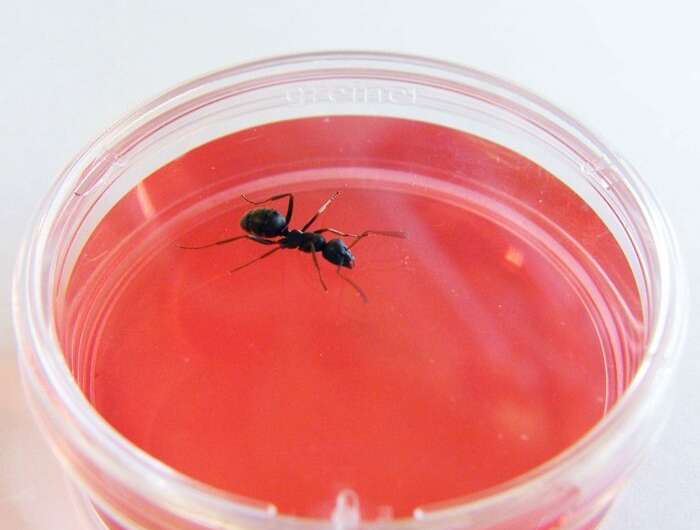Ants can 'sniff out' cancer

Cancer detection is a major public health challenge, and the methods currently available to achieve it, for example MRIs and mammograms, are often expensive and invasive. This limits their large-scale use. To bypass these constraints, alternative methods are being studied, like the use of animals' sense of smell.
A team of scientists from the CNRS, Université Sorbonne Paris Nord, Institut Curie and Inserm1 have demonstrated how a species of ants, Formica fusca, has performed in the area. After a few minutes of training, these insects, which use smell for daily tasks, were able to differentiate healthy human cells from cancerous human cells.
By analyzing the compounds emitted by various cells, the scientists have shown that each cell line had its own smell that could be used by the ants to detect them. The efficacy of this method must now be assessed using clinical trials on a human being but this first study shows that ants have high potential, are capable of learning very quickly, at lower cost, and are efficient. The results are published in iScience.
More information: Baptiste Piqueret et al, Ants detect cancer cells through volatile organic compounds, iScience (2022). DOI: 10.1016/j.isci.2022.103959
Journal information: iScience
Provided by CNRS


















